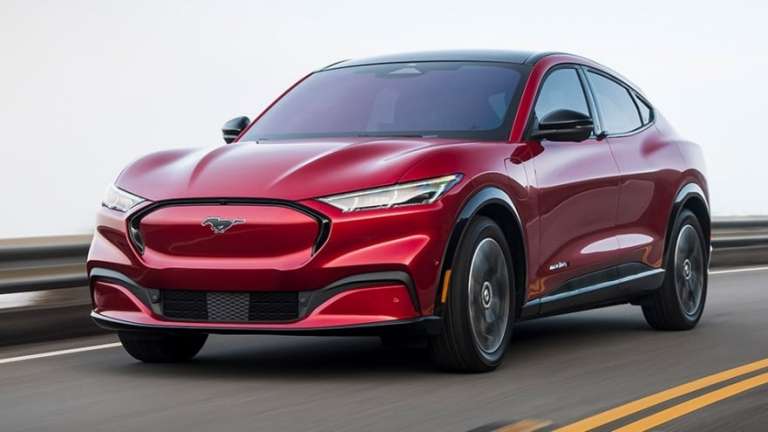Buckle up, car enthusiasts! Ford is making waves in the electric vehicle (EV) industry with its recent decision to end its EV Certification Program and open up sales to all dealers. This strategic move not only marks a shift in Ford’s sales strategy but also promises exciting changes for both dealerships and customers alike. Let’s dive into the details of this game-changing development in the automotive world.
Reasons for Ending the Program
The decision to end Ford’s EV Certification Program came as a surprise to many in the automotive industry. The program, which aimed to ensure dealers were equipped to sell electric vehicles effectively, had been in place for several years. However, recent shifts in the market dynamics prompted Ford to reevaluate its approach.
One of the main reasons cited for ending the program was the evolving landscape of electric vehicle sales. With growing consumer interest and advancements in technology, Ford recognized the need to adapt quickly and streamline its sales strategy.
Moreover, terminating the certification program allows Ford to open up access to all dealerships, enabling more widespread availability of their electric vehicles. This move is part of a broader effort by Ford to expand its market reach and strengthen its dealer network across different regions.
This strategic shift reflects Ford’s commitment to staying competitive in an increasingly electrified automotive industry while maximizing dealer access and market expansion opportunities.
Impact on Dealerships and Customers
The end of Ford’s EV certification program has brought about a significant impact on both dealerships and customers alike. Dealerships that were previously excluded from selling Ford electric vehicles can now access this market segment, potentially expanding their offerings to meet the growing demand for EVs.
For customers, this change means increased accessibility to Ford’s electric vehicle lineup. With more dealerships able to sell these eco-friendly cars, consumers have a wider range of options when looking to purchase an electric vehicle. This move by Ford not only benefits its dealer network but also enhances the overall customer experience by making it easier to find and buy an EV.
The decision to reopen sales to all dealers reflects Ford’s strategic shift towards a more inclusive sales strategy in the rapidly evolving automotive industry. By allowing more dealers access to their electric vehicles, Ford aims to strengthen its position in the market while catering to the increasing demand for sustainable transportation options like EVs.
Reopening Sales to All Dealers
Ford’s recent decision to reopen sales of electric vehicles (EVs) to all dealers marks a significant shift in their distribution strategy. By allowing all dealers access to sell EVs, Ford is looking to expand its market reach and increase accessibility for customers interested in eco-friendly vehicles.
This move comes after the termination of the exclusive EV certification program earlier this year. With this change, Ford aims to streamline the purchasing process for potential buyers who may have been limited by dealership restrictions.
Reopening sales to all dealers could potentially lead to increased competition among dealerships, driving them to provide better customer service and incentives. It also allows for a more diversified dealer network capable of catering to different regions and demographics.
However, some concerns may arise regarding consistent training on EV technology and sales strategies across all dealerships. It will be interesting to see how Ford navigates these challenges while capitalizing on the benefits of expanding its dealer network for EV sales.
Potential Benefits and Drawbacks
Potential Benefits:
Ford’s decision to end the EV certification program opens up opportunities for all dealerships to sell electric vehicles, potentially expanding market reach.
This move could lead to increased accessibility for customers looking to purchase Ford’s electric offerings, enhancing overall customer satisfaction.
By allowing all dealers access to sell EVs, Ford can streamline its sales strategy and reduce administrative complexities associated with a limited certification program.
Drawbacks:
However, without a certification process in place, there may be concerns about the level of expertise among dealership staff when it comes to selling and servicing electric vehicles effectively.
The absence of a formal training program could impact the quality of customer service related specifically to EVs, potentially leading to customer dissatisfaction or misconceptions.
Competitors’ Approaches to EV Certifications
As the automotive industry shifts towards electric vehicles (EVs), various competitors have implemented their own approaches to EV certifications. Some manufacturers have stringent certification programs in place to ensure dealers meet specific criteria before selling EVs. These programs often focus on training, infrastructure requirements, and customer service standards tailored to electric vehicles.
On the other hand, some competitors opt for a more open approach, allowing all dealers access to sell EVs without requiring specialized certifications. This strategy aims to expand market reach quickly by leveraging existing dealer networks and increasing accessibility for customers interested in purchasing electric vehicles.
While strict certification programs can guarantee a certain level of expertise and consistency across dealerships, an open approach may facilitate faster adoption of EV technology as more dealers can offer these products with fewer barriers. It will be interesting to see how different strategies play out in the evolving landscape of the automotive industry.
Conclusion
Ford’s decision to end the EV Certification Program and reopen sales to all dealers marks a significant shift in its approach to electric vehicle distribution. By expanding dealer access and streamlining the sales process, Ford aims to accelerate its market expansion and cater to the increasing demand for electric vehicles. While this move presents opportunities for both dealerships and customers, it also poses challenges in terms of maintaining consistency across the dealer network. As competition in the electric vehicle market intensifies, how Ford navigates these changes will be crucial in shaping its future success in the automotive industry.



